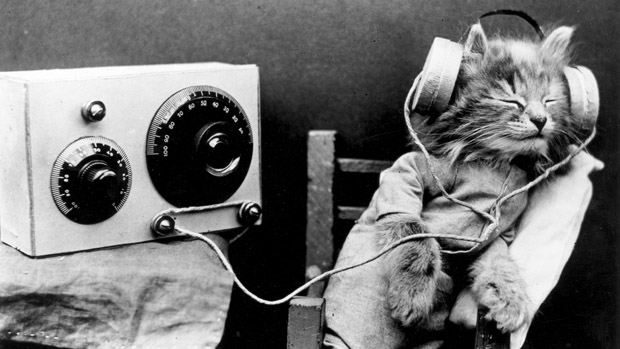What is ASMR and what are the most common triggers?
If certain sounds give you the chills, you may be experiencing the internet’s favourite phenomenon

A free daily email with the biggest news stories of the day – and the best features from TheWeek.com
You are now subscribed
Your newsletter sign-up was successful
If you’ve ever found that certain sounds give you a feeling of “chills” across your scalp, on the back of your neck or down your spine, you may well have been experiencing ASMR.
ASMR stands for autonomous sensory meridian response - and it’s “having a pop culture moment”, says the Smithsonian Magazine.
The term describes the state of “low-grade euphoria” which some of us experience in response to a certain sensory stimulus. These are usually auditory, but can occasionally be visual as well.
The Week
Escape your echo chamber. Get the facts behind the news, plus analysis from multiple perspectives.

Sign up for The Week's Free Newsletters
From our morning news briefing to a weekly Good News Newsletter, get the best of The Week delivered directly to your inbox.
From our morning news briefing to a weekly Good News Newsletter, get the best of The Week delivered directly to your inbox.
Although the label may be relatively new, the phenomenon is far from uncommon, judging by the thriving online community of ASMR content producers, the most popular of whom have attracted a following of millions.
What are some common triggers?
Each individual susceptible to ASMR will have their own set of triggers. However, the most popular ASMR content on YouTube involves whispering, usually by a female performer. One video on an account called Gently Whispering ASMR has racked up more than 20 million views.
Other sounds which frequently induce ASMR in listeners include scratching, tapping, crumpling paper or pages being turned, according to the website ASMR Lab.
A free daily email with the biggest news stories of the day – and the best features from TheWeek.com
But perhaps most important of all is sound quality, says blog The ASMR. A clear subject isolated from background noise “is a big trigger for most individuals,” it reports, especially if it is a sound not usually heard clearly, such as that produced by people “parting their lips and also moving their tongue from its natural position when they are about to talk”.
Is it a fetish?
While “autonomous sensory meridian response” might seem like a mouthful, it’s an improvement on another proposed term for the phenomenon, the painful-sounding “auditory induced head orgasm”.
In fact, several early naming suggestions included the word “orgasm”, reflecting the ongoing debate as to whether the pleasure induced by ASMR is sexual.
For some enthusiasts, ASMR is definitively a sexual fetish, and a simple online search reveals a rich seam of erotically-charged recordings produced to cater to this demographic.
However, the majority of fans are looking for relaxation rather than arousal. The Guardian says a 2015 study by Swansea University found that people were “17 times more likely to use ASMR videos to help them to fall asleep than for sexual stimulation” - although that didn’t stop the Chinese government’s anti-pornography bureau issuing a ban on all ASMR content last year.
What is the science behind it?
So far, the scienctific evidence is scant. Until the formal term was coined in 2010 by Jennifer Allen, ASMR “resided at the outer edge of respectability”, often conflated with sexual fetishism or, at best, dismissed as pop science, says the Smithsonian Magazine.
However, in the past few years scientists have started to take ASMR seriously. Initial studies have produced “intriguing - if limited - findings” suggesting that ASMR-inducing content may relieve symptoms of stress and insomnia in those who are susceptible to the sensation.
In his book Brain Tingles, US bio-pharmacist Dr Craig Richard “suggests parents can use ASMR techniques - such as whispering, stroking a child’s arm, repetitively tapping, and crinkling paper - to calm children and encourage them to sleep”, says The Guardian.
-
 How the FCC’s ‘equal time’ rule works
How the FCC’s ‘equal time’ rule worksIn the Spotlight The law is at the heart of the Colbert-CBS conflict
-
 What is the endgame in the DHS shutdown?
What is the endgame in the DHS shutdown?Today’s Big Question Democrats want to rein in ICE’s immigration crackdown
-
 ‘Poor time management isn’t just an inconvenience’
‘Poor time management isn’t just an inconvenience’Instant Opinion Opinion, comment and editorials of the day